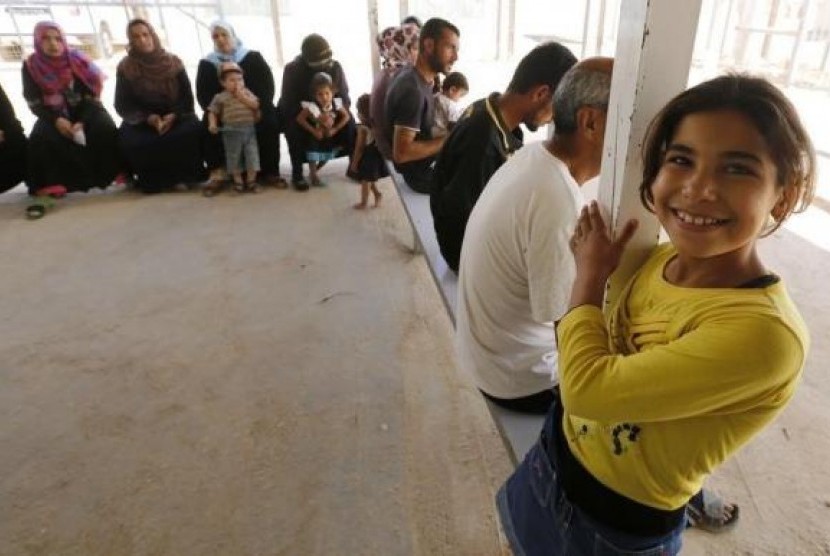REPUBLIKA.CO.ID, GENEVA -- The number of asylum-seekers in industrialised countries rose by nearly half last year, driven by the devastating conflicts in Syria and Iraq, with Germany the top destination, the UN refugee agency said Thursday.
In 2014, some 866,000 people applied for asylum in such countries, marking a 45-percent jump from a year earlier and a 22-year high, the UN refugee agency said.
The surge is linked to the spiralling conflicts in Syria and Iraq, which have created "the worst humanitarian crisis of our era," spokeswoman Melissa Fleming told reporters.
As a sign of the crisis, the number of asylum applications last year was the second highest on record, coming very close to the all-time-high of the about 900,000 requests made in 1992, at the beginning of the conflict in Bosnia and Herzegovina, UNHCR said.
Syria's conflict, now in its fifth year, has killed more than 215,000 people and forced 11.4 million people to flee their homes, including nearly four million who have left the country.
Last year, 150,000 Syrians applied for asylum in industrialised countries, marking a 166-percent hike from 2013 and accounting for a fifth of all asylum claims, the UNHCR report said.
As the violence in Syria has spilled over into neighbouring Iraq with the ruthless Islamic State jihadist group, Iraqis too have been leaving in droves.
Last year they accounted for 68,700 asylum applications to wealthy nations -- almost double the number a year earlier -- while Afghans made up the third largest group, with almost 60,000 applications.
Countries must step up
The number of asylum applications from Syrians especially is expected to swell further, Fleming said, pointing out that many of the some 3.9 million Syrian refugees scattered around neighbouring countries are growing weary of waiting for the conflict in their country to end.
"What we are seeing now is a trend towards ... a feeling like this war is never" going to end, Fleming said, pointing out that many had set their sights on Europe.
This trend explains the sharp increase in Syrians attempting to make the perilous journey across the Mediterranean, she said, urging European countries to respond as generously to the current crisis as they did during the Balkan war.
"We need countries to step up to the plate," she said.
But the burden is spread far from evenly among the 44 industrialised countries included in the report.
The top five receiving countries -- Germany, the United States, Turkey, Sweden and Italy -- accounted for 60 percent of all new applications last year, UNHCR said.
Germany clearly topped the list, alone receiving a fifth of all the asylum applications last year, at 173,000 requests. A quarter of them were from Syrians, the report said.
The United States counted 121,200 asylum claims, mainly from Mexicans.
Turkey, which by the end of 2014 was hosting more than 1.5 million Syrian refugees, meanwhile received 87,800 new asylum requests last year, mainly from Iraqis, the report showed.
Syrians, who have been flooding into the country, are not counted in the asylum application statistics, since they as a group are automatically granted temporary residency.
Sweden ranked fourth in terms of numbers at 75,100 applications, mainly from Syrians and Eritreans, but topped the list relative to its population size.
Over the past five years, the Scandinavian country has counted on average 24.4 asylum seekers per 1,000 inhabitants, the report said.
Industrialised countries meanwhile take in only a fraction of the people forced to flee their countries due to conflict, with 85 percent of all refugees living in developing nations, Fleming pointed out.


